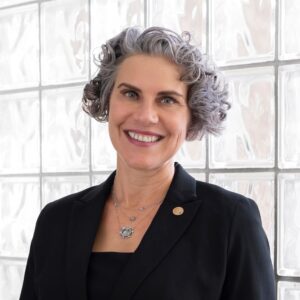Invoking the right to die presents a no-win situation for providers
Paula Span, of the popular The New Old Age blog, wrote last week about an elderly couple who roused all kinds of turmoil at their assisted living facility when they decided to stop eating and drinking. This was a decision that Armond and Dorothy Rudolph had agreed upon years ago; that if their quality of life became a “lingering decline,” they would take matters into their own hands to end it. And their children were supportive of that wish.
When administration at the facility, The Village at Alameda in Albuquerque, N.M., was informed of the couple’s plan, they tried to evict them on orders from the corporate ownership’s legal department. The elders’ son, Neil Rudolph, informed management that their contract required 30 days’ notice prior to discharge, so administrators then called 911 and reported a suicide attempt.
Emergency responders determined the need for guidance from a professional in bioethics, and a doctor from the University of New Mexico was called to intervene and assess the situation. He offered transportation to go to a hospital, which the Rudolphs declined, as was their protected legal right to refuse medical intervention.
The Rudolphs had limited options. They could continue to voluntarily stop eating and drinking and hope to fulfill their end-of-life wishes before the eviction would be enforced, or they could move out of the facility to another location—one that was free of distractions. They chose the latter option and died a “dignified and peaceful death,” their son Neil recently told reporters.
Within Neil’s words is the rub of the matter for providers: Respecting resident dignity and choice is all well and good until divergent ethics clash.
Most of the reader comments to Span’s blog show support to the Rudolphs and anger toward the facility. “Why can't institutions accept people's wishes and just let them die?” one person opined. “I am getting old, and I do not look forward to dying in the only ways our society allows,” another wrote.
But I notice a normally vocal population remains silent, that of adult children who view healthcare settings as havens to protect their parents from themselves.
Back in April I wrote about overhearing phone conversations on the bus in which a young female passenger demanded her grandmother be placed in assisted living because she decided to stop eating. Now this is starting to get confusing.
Whose wishes are long-term care and senior living providers meant to fulfill: that of the residents, in which culture change instructs, or that of the family, which places faith in the provider to provide care—and lashes out with scorn when care is not provided?
It is true that the children of Mr. and Mrs. Rudolph supported the decision to end life. But that’s not always the case. I do not see why healthcare providers should suffer opprobrium from an issue that our society and justice system has still not clearly taken a stance on. And really, how can we fault caregivers for wanting to care?

Kevin Kolus wrote for I Advance Senior Care / Long-Term Living when he was an editor. He left the brand in 2012. He is now senior communications manager at Cleveland Clinic.
Related Articles
Topics: Risk Management











